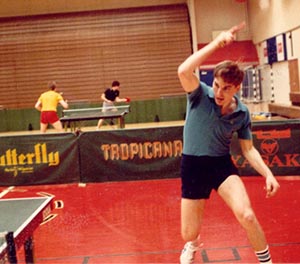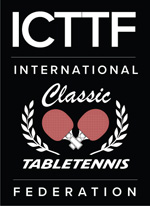MDTTC Camp
Yesterday was Day Two of Week One of our ten weeks of camps at MDTTC. As usual, it's always surprising watching beginners on day one who seem to have no concept or potential to do a proper shot suddenly start making the shots properly on day two. There are four in the camp who are basically beginners.
Sometimes it's a coach can get caught off guard by what he doesn't know about the players. After a day and a half of coaching, I asked three of the beginners (ages 6, 8, and 10) if they thought they were ready to play some games. All three looked rather confused. After some questioning, I realized the obvious - they didn't know how to play a game. None knew how you score a point or how many points a game was up to. So I stopped everything and went over the rules with them. I made a game out of it, seeing who could correctly answer (or guess) the answer to basic rules. When I first asked how many points a game was up to, they argued whether games were to ten or twenty. One guessed that each player served six times in a row, and the other two immediately agreed with this. So I made a mental note to myself to remember to go over the basic rules sooner next time.
Ratings Quirks
Here are two interesting quirks of the USATT rating system.
1) Can You Predict the Odds in a Match from their Ratings?


 Photo by Donna Sakai
Photo by Donna Sakai




